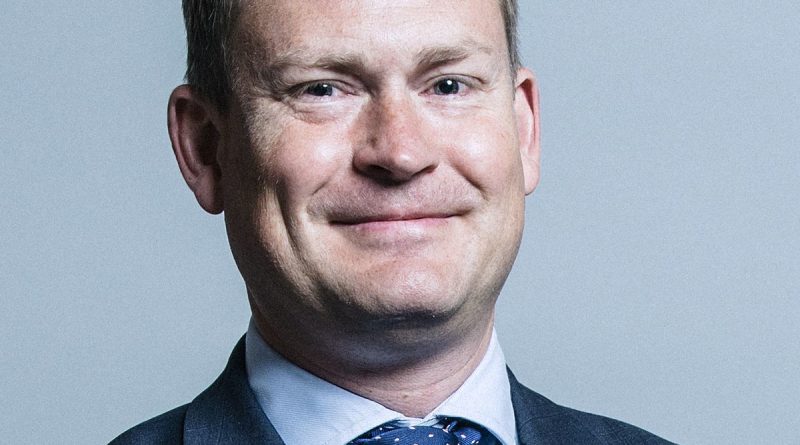Justin Madders – 2022 Speech on the Resignation of Lord Geidt
The speech made by Justin Madders, the Labour MP for Ellesmere Port and Neston, in the House of Commons on 21 June 2022.
The origins of this debate are more than six months old and lie in the farce that was the investigation into the refurbishment of the Downing Street flat. I call it a farce not because I want to undermine Lord Geidt—I cannot hold a candle to the Prime Minister in doing that—but because it is clear that he was led a merry dance by the Prime Minister in the first place, when the Prime Minister failed to disclose a series of crucial WhatsApp message between himself and Lord Brownlow.
The accidental omission of those messages in the “dog ate my homework” style that must have been forged in the gilded halls of Eton made sure that Lord Geidt was pretty embarrassed that he had been taken for a fool in that way. He said as much in the second letter he wrote to the Prime Minister about the investigation:
“It is plainly unsatisfactory that my earlier advice was unable to rely on the fullest possible disclosure of relevant information.”
That is a very polite way of putting it. The nub of it is when he wrote that
“this episode demonstrated insufficient regard or respect for the role of Independent Adviser.”
That was a very clear warning sign about where this was all heading. What did we get then? The Prime Minister, without a hint of irony, wrote back to Lord Geidt and said:
“I very much value your work as my Independent Adviser. The role is critical for the effective government of this country.”
That strikes me as quite a contrast to the position six months later.
It is still not entirely clear, despite what the Minister said, whether the Government believe an ethics adviser is necessary. Even worse, the Culture Secretary said this week that nobody gave “a fig” about him resigning. Well, I certainly disagree with that view most profoundly. Where I find more common ground with the Culture Secretary is when she said that Lord Geidt was always complaining that he had too much work to do. I can well believe that with this Government and this Prime Minister, anyone concerned with ethics would certainly have a heavy workload. Perhaps we need two ethics advisers in future. We find ourselves in a position where six months ago the ethics adviser effectively put the Government on notice that he was very unhappy with the way he was being treated.
Last month we had the annual report from Lord Geidt in which he states:
“It may be especially difficult to inspire that trust in the Ministerial Code if any Prime Minister, whose code it is, declines to refer to it. In the case of the Fixed Penalty Notice recently issued to and paid by the Prime Minister, a legitimate question has arisen as to whether those facts alone might have constituted a breach of the overarching duty within the Ministerial Code of complying with the law.”
There is a pattern here. As with the missing WhatsApp messages, anything inconvenient is ignored in the hope that it will eventually go away. But of course the Prime Minister could not ignore such a clear signal in the report. We need not have worried, because he wrote back to Lord Geidt and said he did not think he had broken the ministerial code and how silly it was for any of us to think that actually breaking the law might also be a breach of the ministerial code. All of us can see the benefits of being judge and jury, and why robust checks and balances need to be in place.
On the resignation letter, Lord Geidt said that an intention to breach the ministerial code deliberately in advance
“would be to suspend the provisions of the code to suit a political end”
and that would make a mockery of the code. I agree with him, but I think we reached the point of mockery of the code when the previous adviser resigned after his recommendations were also ignored. We cannot pretend that what Lord Geidt said there is anything other than a damning statement. For the Prime Minister’s own ethics adviser, appointed by the Prime Minister, to walk away after having his patience tested repeatedly, having warned repeatedly that trust was being eroded, is a state of affairs that should send a shiver down all our spines. Every single one of us in this place who is concerned about the probity of Government, who thinks that it is our job to uphold the law, not to break it, should see that statement as the ringing of the loudest of loud alarm bells.
The ethics adviser is not there to provide cover for the Prime Minister who wants to bend the rules. The ethics adviser is not there to be ignored when the advice proves inconvenient, and the ethics adviser is not there to be made a fool of. They are there as a safeguard for the wider responsibility, which we all have, for the way that politics is done. None of us is here for ever, but while we are here, we need to remember that we are the guardians of democracy. What we say and where we set the limits of adherence to the rules while we are here matter because they become the starting point for the next generation to work from.
If we do end up in a position where the Government of the day decide that an ethics adviser is no longer needed, or we never get to a point where one is appointed, even though, six months ago, it was said to be a critical position, where does the conversation go after that—to a further erosion of the safeguards that any mature democracy needs? Let us be clear: we do need those safeguards, because democracy is fragile and it cannot be taken for granted; it has to be cherished and defended by us as its guardians. Every watering down of the rules, every reduction in transparency, every erosion of accountability have to be fought against because many Governments want—to coin a phrase—to take back control. Most Governments, however, also have a respect for the rules, understand their place in history and know that having clear rules to which everyone is accountable is the glue that holds our democracy together.
When we have a Government with a track record like this one, it really is up to us to push back against that. Whether it be breaking the law in a specific and limited way, trying to wriggle out of treaties signed, changing the way that the standard rules operate, or excusing breaches of the “Ministerial Code”, this Government have shown, time and again, that they do not think that they need to abide by the rules. However, rules do matter. The rules about how our politics is conducted should be there long after we have all gone and they should not be jettisoned because it is convenient for the Government of the day to do so.
Parliament should be the beacon of fair play. It should be an example for others, both in this country and abroad, to look at and say that, yes, democracy is a good thing, and that it can change people’s lives for the better. Not all politicians are self-serving, but when we see a bending of the rules, the ignoring of them, or the changing of them to suit a short-term political agenda, those looking in on this place can rightly say, “Who are you to lecture us about responsibility? Who are you to tell us about showing leadership?”
Leadership is what this is all about. Those at the top need to behave with honour, to respect conventions and to recognise their wider responsibility to the body politic. That is all put at risk when those in power do not see the importance of that, and the weaknesses in our unwritten constitution become all too apparent. That is when our democracy is diluted, and with a Government who, because of the size of their majority, grow contemptuous of the need for probity and bit by bit dismantle the safeguards that we need, we enter this dystopian world where newspaper stories mysteriously disappear and the Prime Minister tells the world that no rules were broken when they clearly were.
This motion tonight will not reverse the dark path down which we are already heading, but it will slow it a little, and with persistence and, dare I say it, a little more courage from the Conservative Benches, we might begin to reverse it. We owe it to ourselves and to the democratic ideals in which we must all at one time have believed to do just that.


